Calais 'Jungle' evacuation begins after clashes with riot police
Sixty buses scheduled to arrive at the camp throughout the day to transport 3,000 people to the shelters
Your support helps us to tell the story
From reproductive rights to climate change to Big Tech, The Independent is on the ground when the story is developing. Whether it's investigating the financials of Elon Musk's pro-Trump PAC or producing our latest documentary, 'The A Word', which shines a light on the American women fighting for reproductive rights, we know how important it is to parse out the facts from the messaging.
At such a critical moment in US history, we need reporters on the ground. Your donation allows us to keep sending journalists to speak to both sides of the story.
The Independent is trusted by Americans across the entire political spectrum. And unlike many other quality news outlets, we choose not to lock Americans out of our reporting and analysis with paywalls. We believe quality journalism should be available to everyone, paid for by those who can afford it.
Your support makes all the difference.The evacuation of the Calais ‘Jungle’ has begun following clashes between residents and police as refugees living in the camp are told they must get on buses that will take them to reception centres across France.
Authorities will begin dismantling the camp's makeshift homes on Tuesday after sixty buses arrive to transport 3,000 people to shelters, known as CAO (centres d'accueil et d'orientation), where they will have to claim asylum in France within a set period of time or face deportation – but it is unlikely that all of the camp's residents will agree to board.
Refugees were seen queuing at a registration centre in the French port town early on Monday morning while it was still dark, wrapped in scarves and coats and holding rucksacks and suitcases.
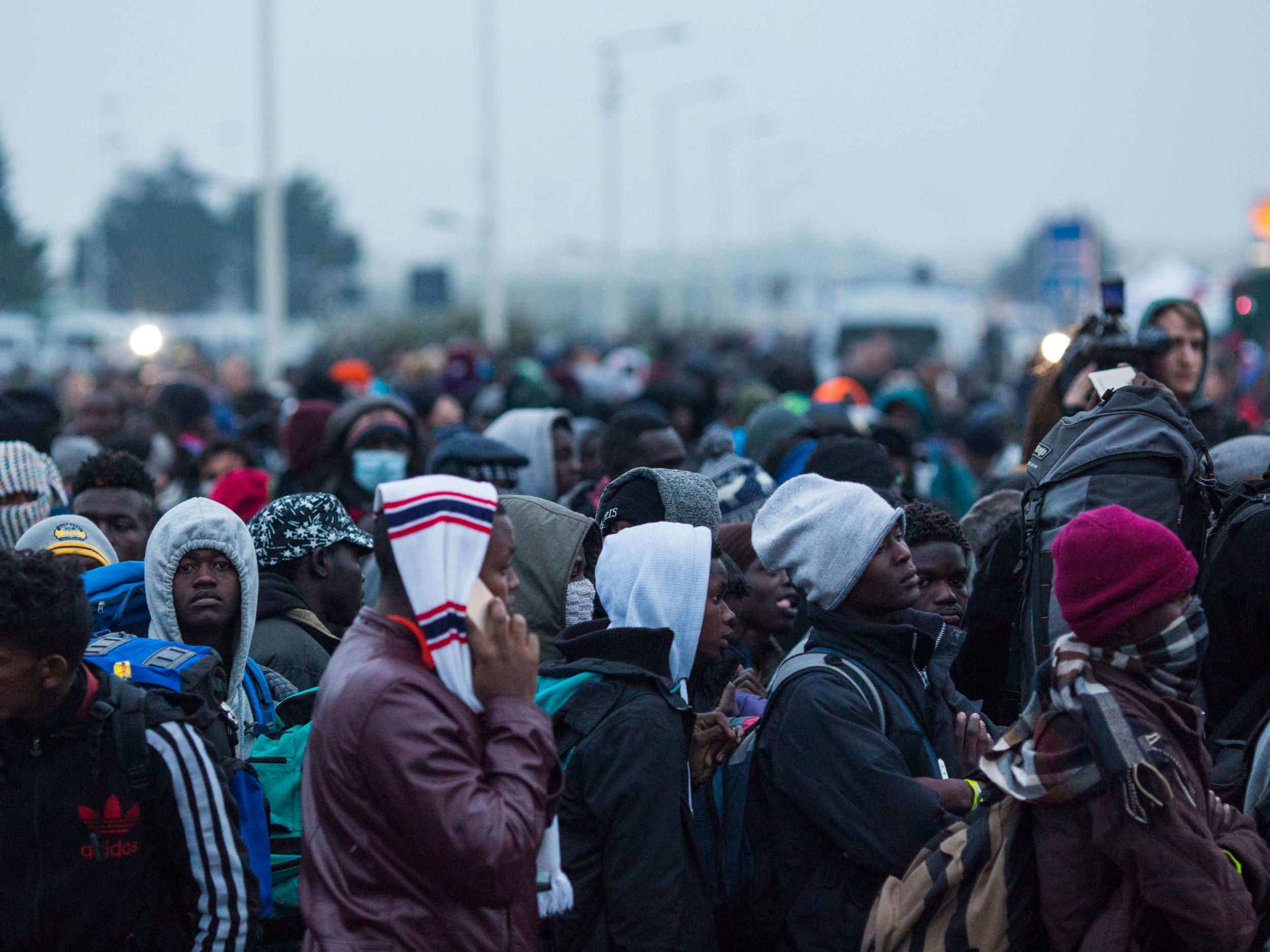
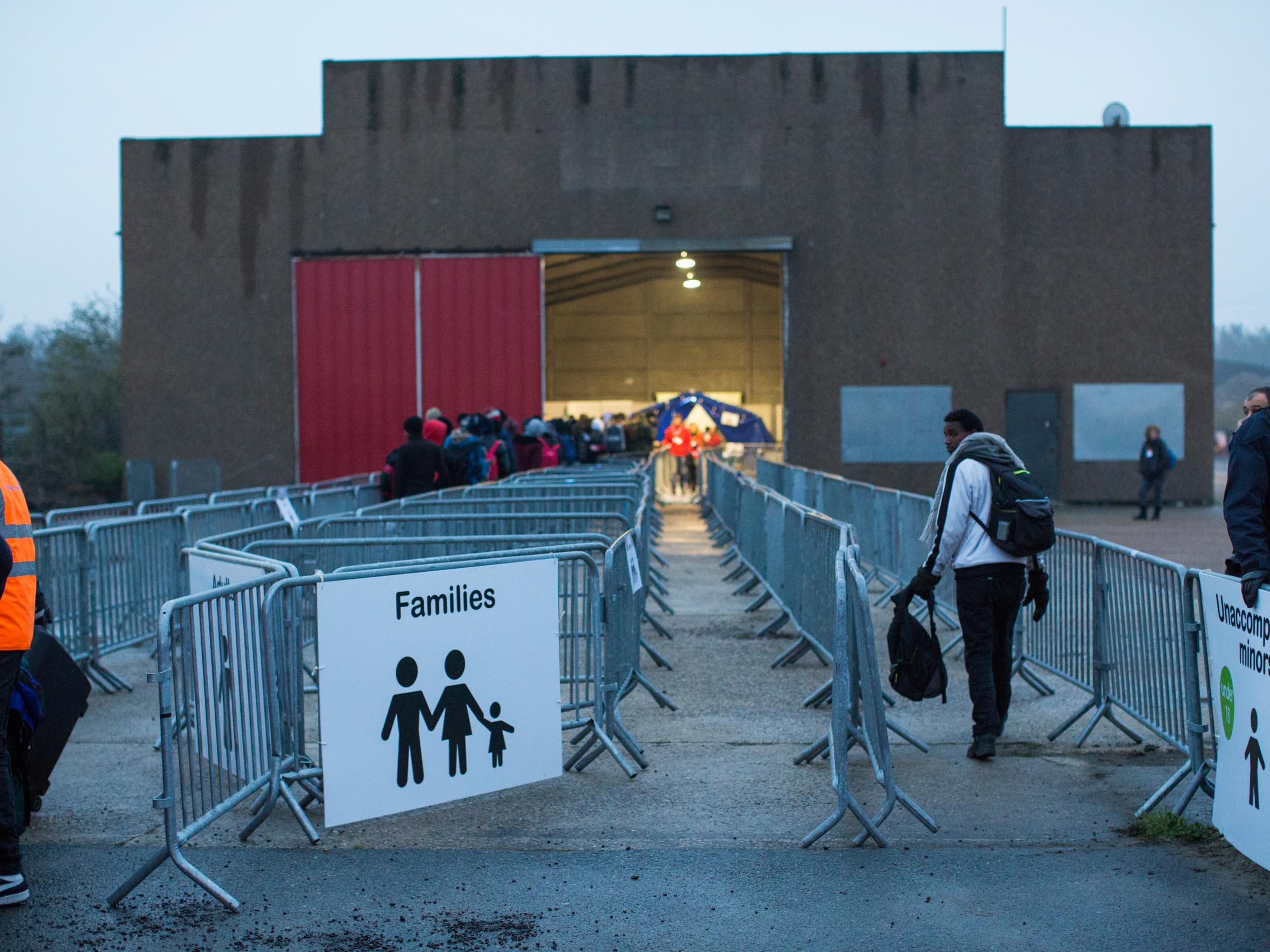
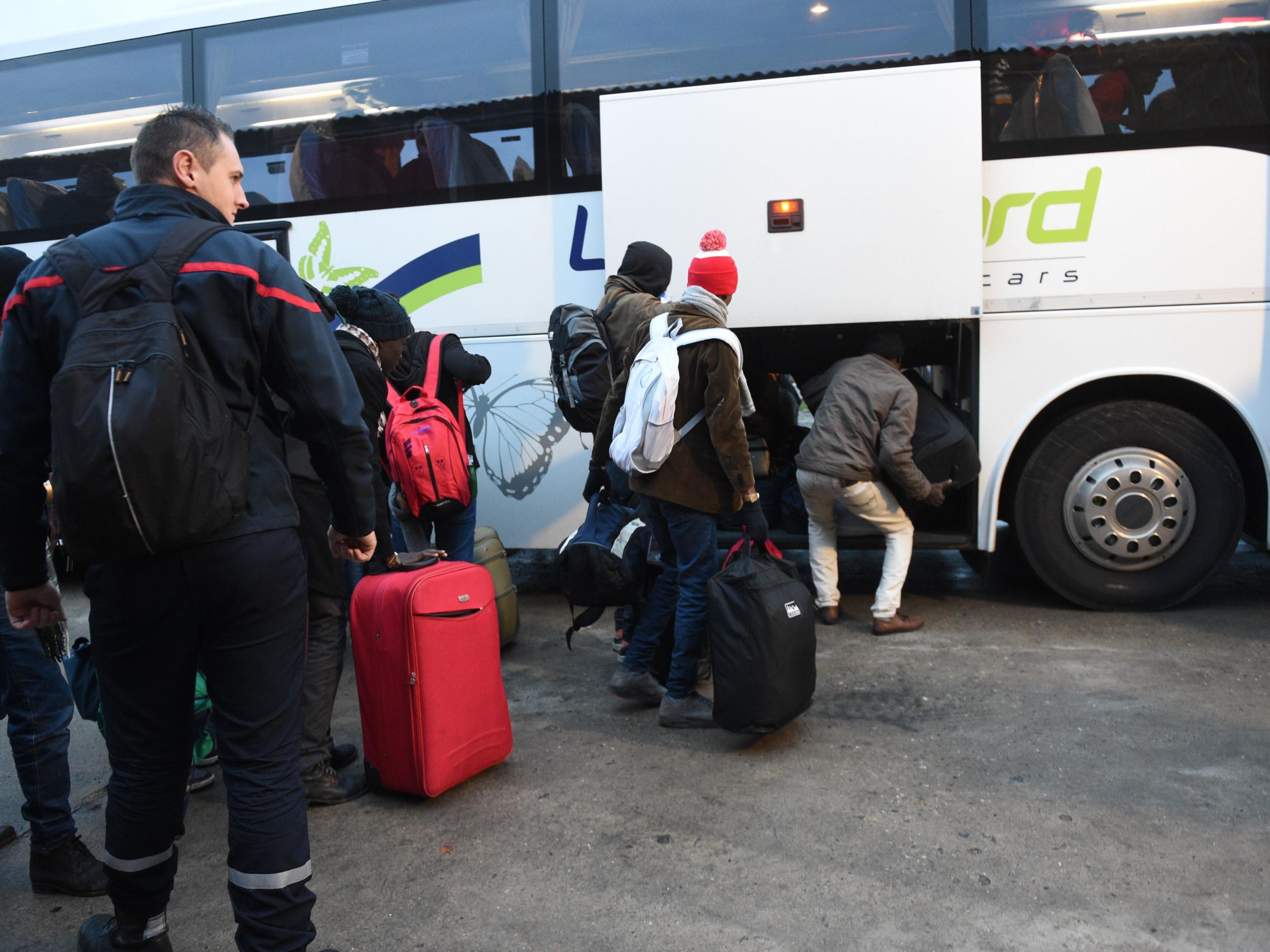
At around 7:30am the gates to the 'welcome point', where refugees are being processed before they board buses, opened and people began being admitted in.
Ahmed, 26 from Sudan, who has lived in the Jungle for three months after a seven month journey to Europe, was among them with a group of other young Sudanese men. He told The Independent: "This is better. There are a lot of problems in the jungle.
"It's cold, there isn't much food. And it's too dangerous to cross to the UK now. I don't know where I'm going but I'm going with my friends. We all came together."
The first coach, reportedly carrying 50 Sudanese, left at 8:45am (6:45am GMT) headed for the Burgundy region in eastern central France.
By midday, several hundred people had joined the queues and 16 buses were already on the road.
Unaccompanied minors are understood to be the only group remaining in Calais and those aged under 18 were told to line up in a separate queue, where they stood quietly.
A volunteer explained they would be processed and then sent back into the camp to shipping containers where they will be assessed for asylum in the UK. She told The Independent: "Most of their parents are dead but they have maybe an uncle or aunt in England. Some will stay in France. They are very well behaved and cooperative."
Aden, 17 from Eritrea, who said he came to the Jungle from his country alone, was in high spirits. He told The Independent: "I'm happy. I want to go to England.
"The camp was okay. You can talk to people in tents and in the restaurants. But sleeping on the floor is hard, and it's getting colder. I'm excited to go to England."
As the queues grew, police intervened to break up small scuffles which had erupted and prevent a stampede, but the operation was generally proceeding in a "calm and orderly manner," according to Interior Minister Bernard Cazeneuve.
The atmosphere in the queues contrasts scenes at the weekend when there were violent clashes, with small groups of camp residents burning toilet blocks and throwing stones at French riot police on the perimeter who retaliated by firing tear gas.
The operation is set to continue throughout the week, with more buses set to arrive and the physical dismantling of the camp starting on Tuesday with plans for the operation to be finished by Friday 28 October.
It is set to take place under the watch of heavily armed police, but the authorities have implied that force will not be used, suggesting there had been an effort to avoid the violent clashes that took place when half of the camp was dismantled in February.
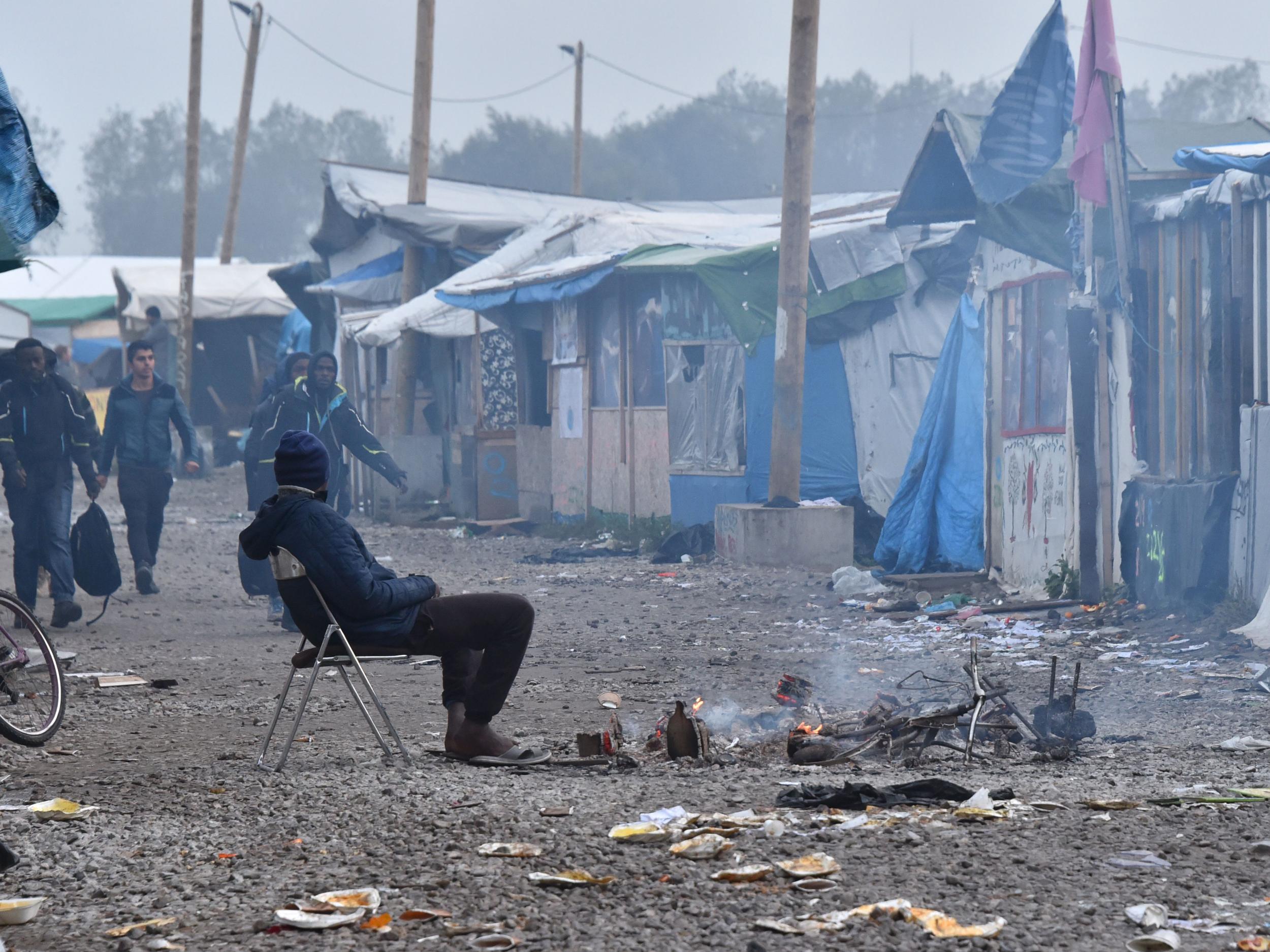
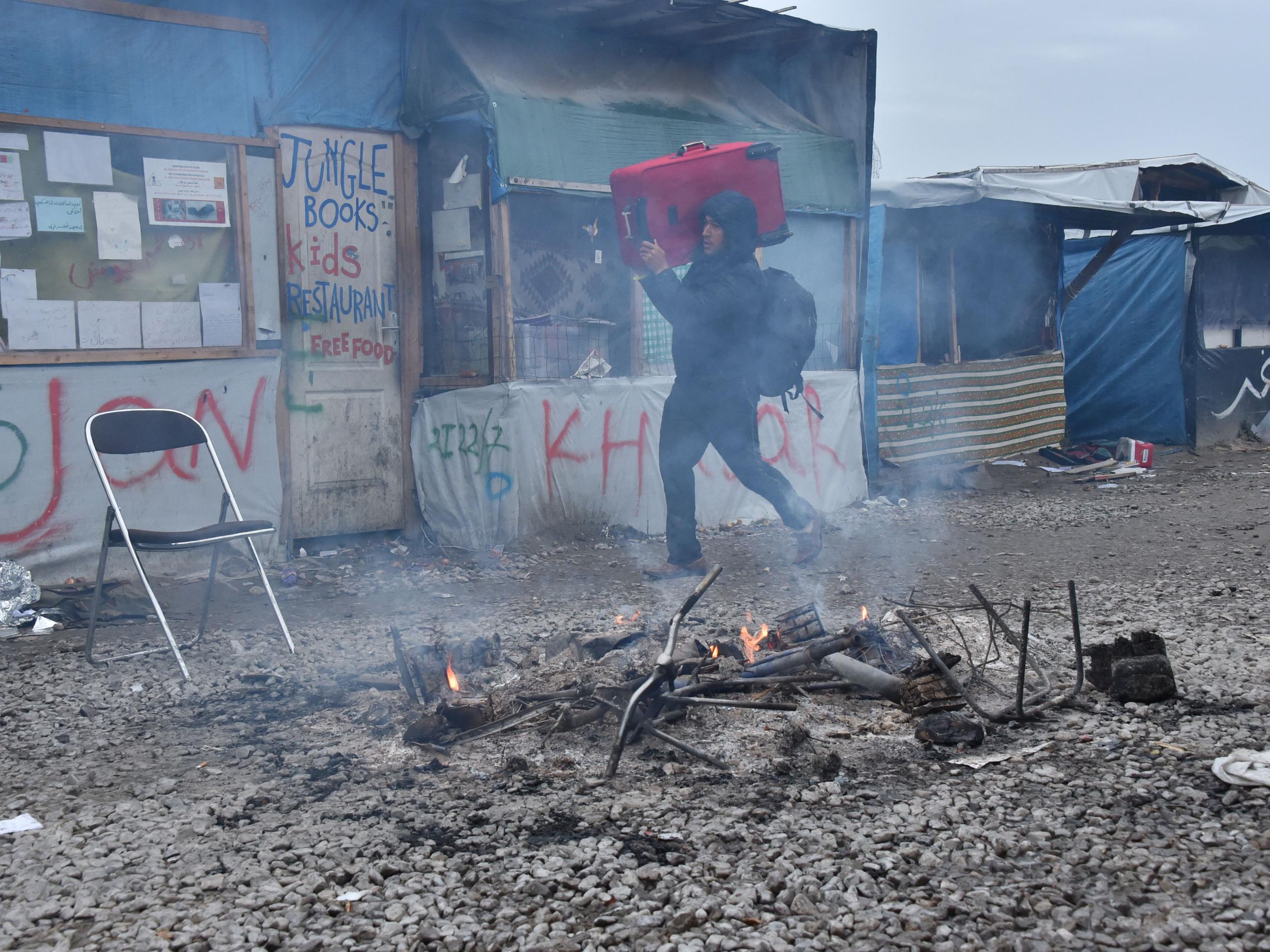
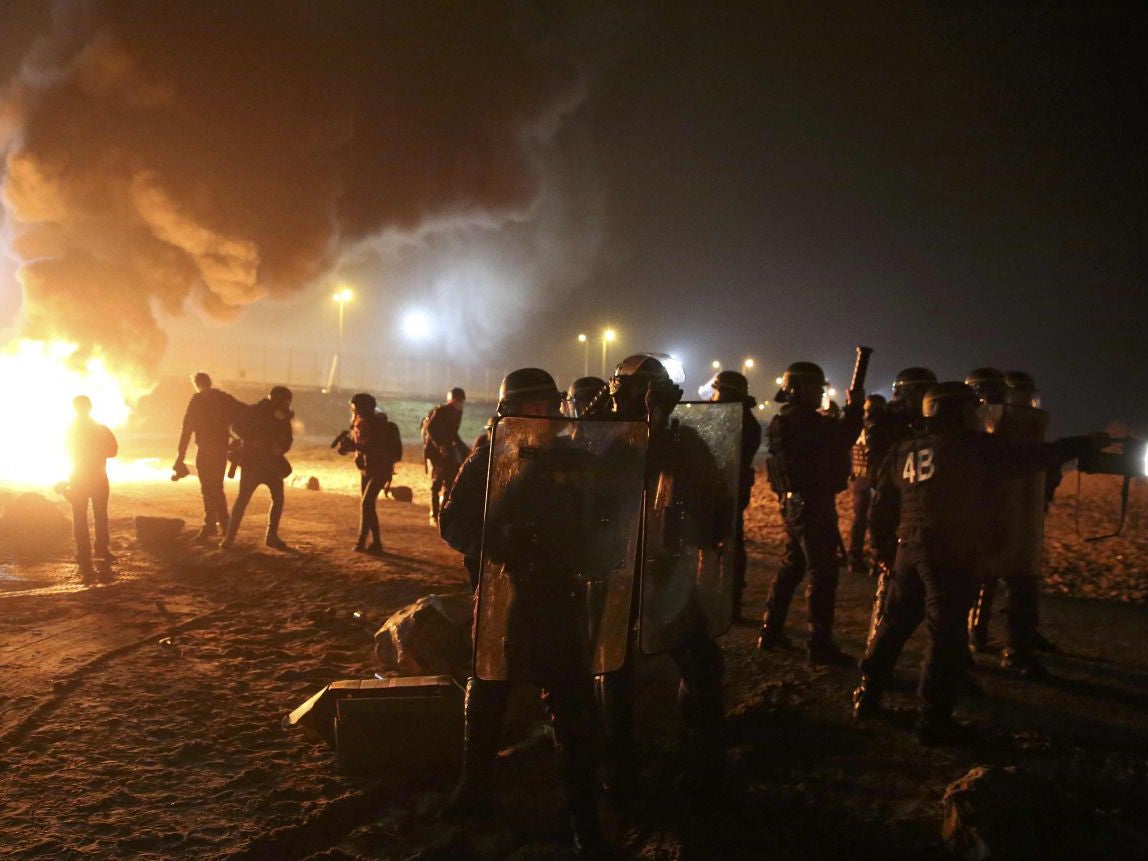
But many volunteers and charities on the ground raised fears that what is hoped to be a straightforward and peaceful operation will inevitably become chaotic, leading to violence between police and residents of the camp. Over the weekend violence in the camp flared, with tear gas released by police on both evenings amid clashes involving small rocks being thrown.
Volunteer-run charity Calais Action have said they believe there will be “anxiety, chaos and confusion” as the evacuation gets underway. The charity wrote in a statement yesterday: “With thousands of people expected to be processed in a matter of hours, and insufficient information being distributed, we anticipate a lot of anxiety, chaos and confusion.
“At the last evictions tear gas and force was used and this time it could be no different. Volunteers on the ground report that there are still men, women and unaccompanied children in the camp who do not know where to go or who to report to. The danger is that they will simply pick up a backpack and disappear, as they did last demolitions in February and March.”
Leaflets issued by the Prefecture of Calais and distributed in the camp over the weekend stated, in several languages – unlike previously when they have only been written in French – that people living there must prepare to leave. But the atmosphere in the camp is said to be permeated with uncertainty, with no one – neither refugees nor volunteers – entirely sure how the “eviction” will be carried out.
Attitudes among camp residents towards leaving to board buses to other parts of France are mixed. While those who have or were hoping to claim asylum in France are experiencing a feeling relief, others, who are still determined to get to the UK, have reportedly expressed unwillingness to get on a bus when the time comes, and up to a third are thought to have already left on their own accord.
Most of the voluntary organisations and individuals on the ground do not believe the operation that will take place in the coming days is a long-term solution to the problem.
Clare Mosely, founder of Care4Calais, told The Independent: “[The evacuation] won’t work. They tried it in February and it didn’t work, because it doesn’t address the underlying issues – that most of these people want to go to the UK.
“There will probably be a lull. Some will probably come back and new people will arrive. That’s what happened last time. A lot of people have left in recent weeks, with some having gone to Germany, others Belgium, but a lot of them just settling in smaller camps in the same area."
Hundreds of police are said to have been deployed to Calais for the operation, including members of France’s riot force the CRS. A heightened police presence has been noted by a number of people living and staying in the city centre, and officers have been seen checking into nearby hotels.
One volunteer said she saw “dozens of CRS checking in” at a Holiday Inn, adding that they were “tooled up to a crazy extent” and that breakfast was booked for 5:30am – suggesting an early start to the operation.
The Calais Prefecture has described the evacuation and proposed resettlement of refugees and migrants as “a humanitarian operation that will take into account the situation of each individual”. According to a spokesperson a total of 7,000 places have been created in the reception centres ahead of the evacuation, adding to 3,000 that already existed.
There are however concerns that some of the communities that are set to take in camp residents are fostering anti-migrant sentiments ahead of their arrival. Several weeks ago the mayor of a southern French town that is set to take in 40 people from the Jungle launched a poster campaign warning that “Migrants are coming”, arguing that he and the town's residents were “not alerted” before the decision was made.
A recent survey by the Refugee Rights Data Project revealed that the majority of residents did not want to stay in a French accommodation centre. The most common reasons given were not wanting to stay in France in the long-term or because they did not trust the French authorities following their negative experiences of them in the Calais camp – such as brutality and ill-treatment by police.
The evacuation and demolition of the 'Jungle' will be reported on by The Independent as the week goes on.

Join our commenting forum
Join thought-provoking conversations, follow other Independent readers and see their replies
Comments